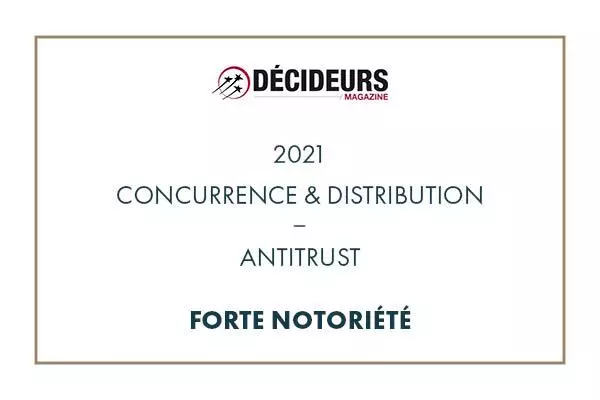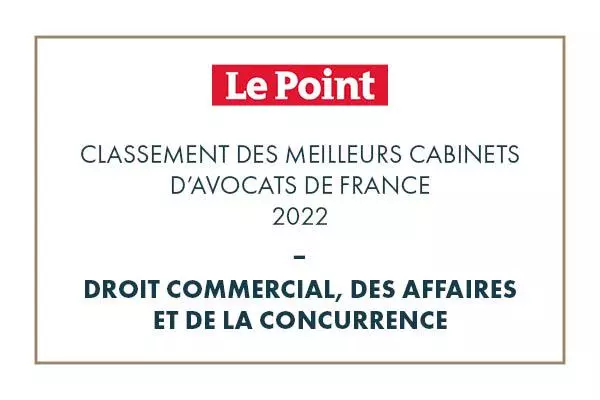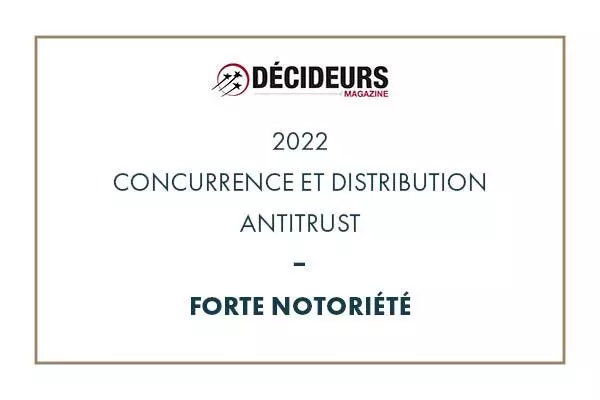The similarity of a website presentation […]
31 March 2023
Paris Court of Appeal, Pôle 5, ch. 2, December 16, 2022, n°21/01469
In a decision dated December 16, 2022, the Paris Court of Appeal considered that a company reproducing the architecture of its competitor’s website, the heading, the slogan and the modes of presentation of its products can be held liable in tort for the commission of acts of unfair competition and parasitism.
In this case, a company specializing in the online sale of labels and personalized objects for children accused one of its competitors of copying the presentation of its website.
The Paris Commercial Court dismissed all of the plaintiff’s claims based on the investments invoked by the defendant. An appeal was filed.
The Paris Court of Appeal will begin by recalling that, in accordance with the principle of freedom of trade, a product that is not the subject of private rights may indeed be freely reproduced, provided that this does not constitute unfair conduct within the meaning of Article 1240 of the Civil Code.
Then, the Court will underline that according to its classic definition, parasitism consists “for an economic operator, to place himself in the wake of another in order to take advantage, without spending anything, of his efforts and his know-how, of the notoriety acquired or of the investments made”.
In other words, the economy of investment is only an element, when it is not a consequence, which does not evade, nor elude the search for appropriations.
The Court will then proceed to a comparison of the two websites on the basis of a bailiff’s report provided by the plaintiff to examine their structure, their rubric, their editorial and their presentation in order to verify if there are not material borrowings exceeding by far the normal competition.
It will raise an identity through the headings on the home page and the texts presenting the products.
- The plaintiff’s site has seven sections entitled: practical packs, clothing labels, self-adhesive labels, personalized water bottles and mugs, personalized lunch boxes, personalized kits and bags and, our activities for children.
- The defendant’s website has nine sections: practical packs, clothing labels, object stickers, bento lunch boxes, isothermal water bottles, tote bags, sequined cushions, customizable mugs and identification bracelets.
The Court will emphasize the similarity in the presentation of the products with similar decorative designs, but much more.
On both sites, there was a single, identical description of the personalized products: “Personalized labels and objects for children, personalize your iron-on label to mark clothes, school supplies, personal objects. At school, in summer camp, in discovery class or in nursery, marking clothes becomes a real pleasure. Our clothing labels are 100% customizable and very resistant (washing machine and dryer). Our personalized labels will delight your children or will constitute an original birth gift.
After having compared all the elements of the two websites and noted the anteriority of the plaintiff’s website, the Court will finally analyze the configuration of the websites of the competing third parties.
Beyond the notable differences of the websites of the other competitors, the plaintiff will submit to the debate the invoices of the service providers it used for the design of its website, which reflects a particular creative effort.
The functioning and the presentation of the website were indeed the result of a financial and intellectual investment.
In addition, the Court will take into consideration that the defendant does not report any accounting element that could justify the possible investments in the design and presentation of its website.
In this context, the Court therefore reversed the judgment and ordered the unfair competitor to pay compensation of 20,000 euros for parasitic acts on the basis of Article 1240 of the Civil Code.
In other words, companies must be vigilant when creating their website because even if it is not protected by copyright, parasitism can engage its tortious responsibility. Indeed, too much borrowing of elements taken as a whole can be considered as faulty.
It is therefore advisable to differentiate the content of its website, whether it is the organization of the headings or the texts and images used.






